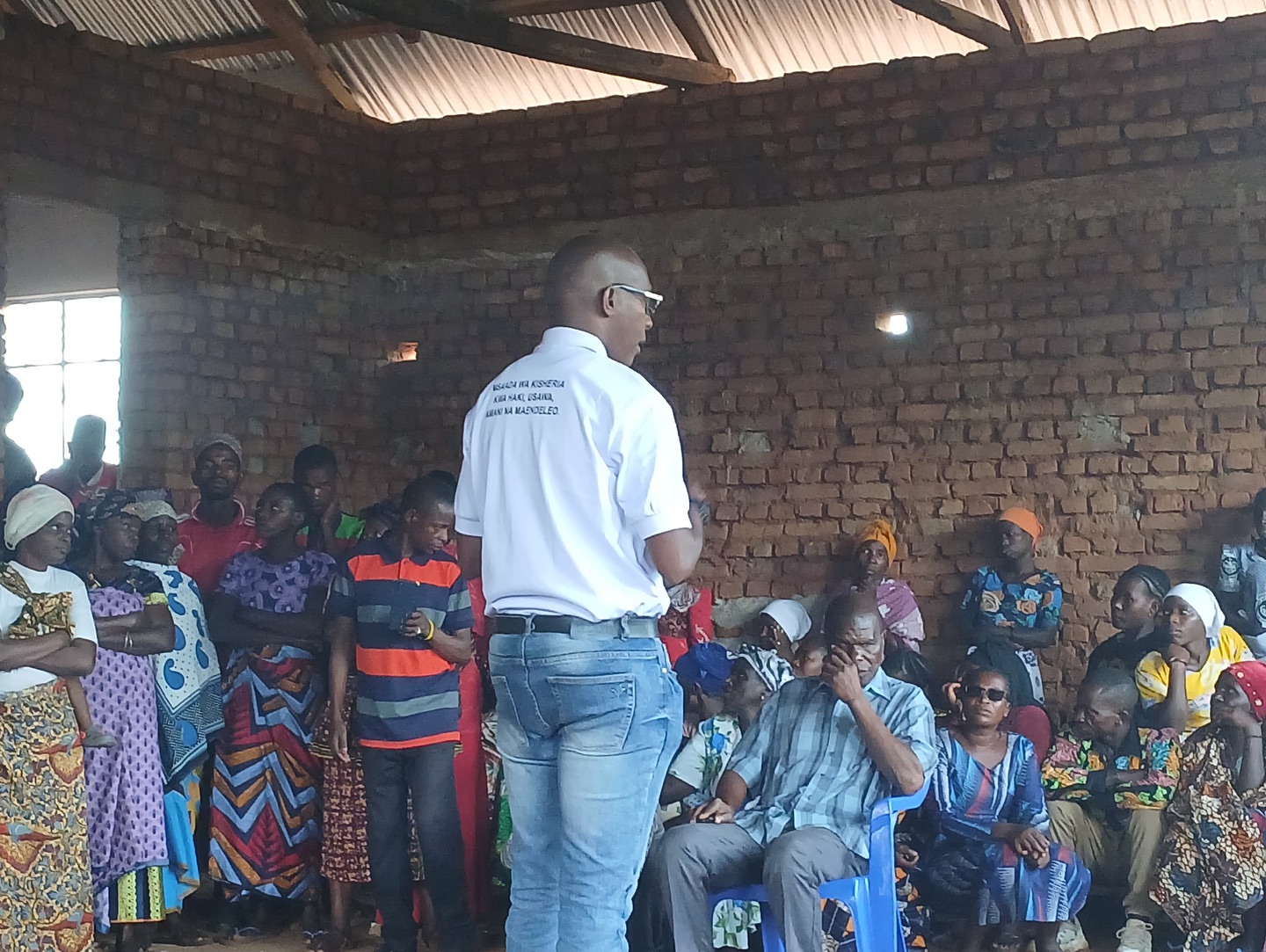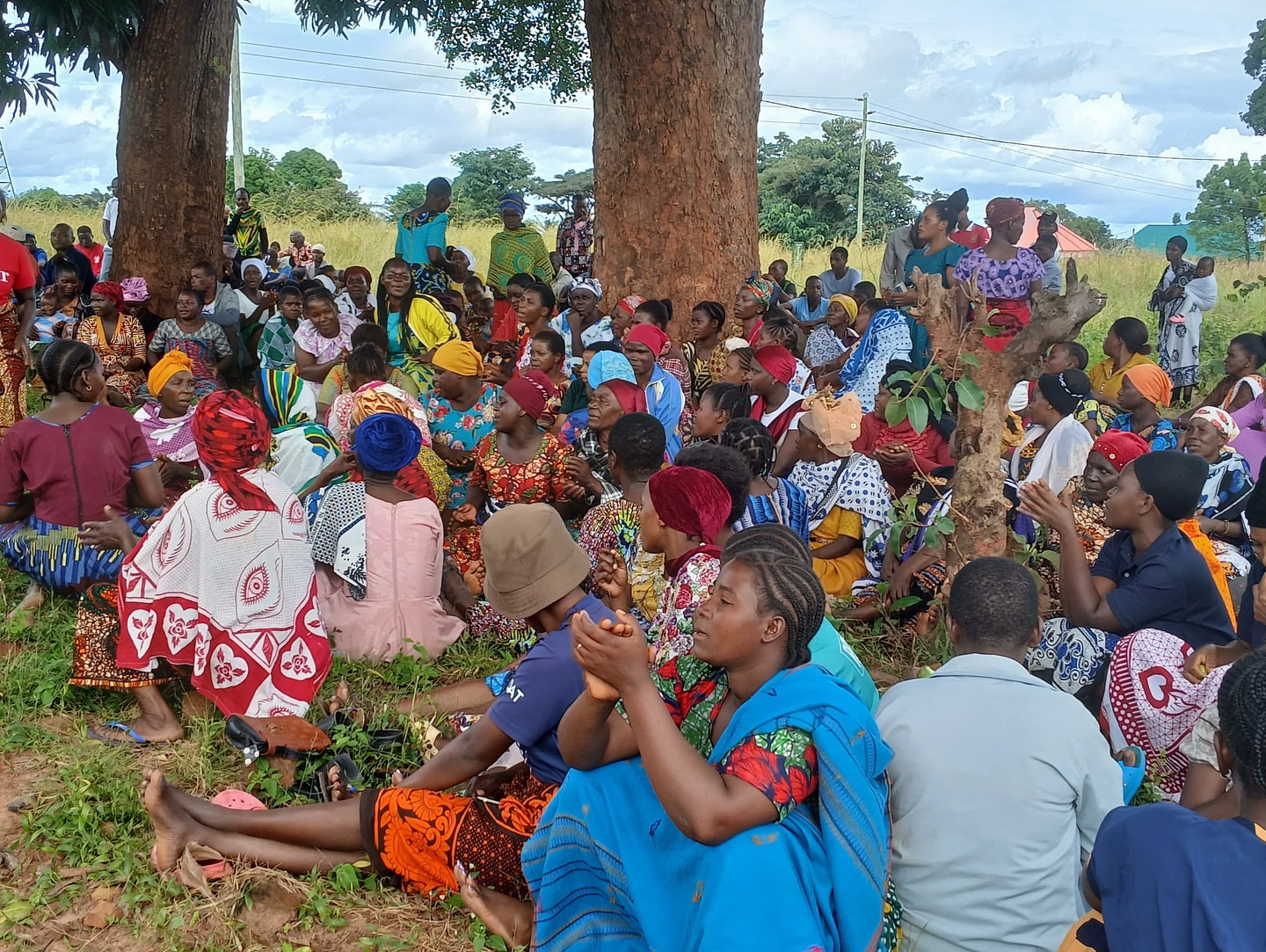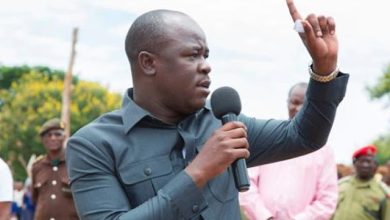Why villages demand continuous legal education

RESIDENTS of Ndelenyuma and Lutukira villages, located in Mkongotema Ward under the Madaba District Council in Songea, Ruvuma Region, have raised their voices in gratitude to the government led by President Samia Suluhu Hassan, through the Ministry of Constitution and Legal Affairs.
Here, the ministry has launched a legal education outreach aimed at promoting peaceful resolution of disputes concerning land, marriage, wills, genderbased violence, election education and electoral law reforms.
They expressed this appreciation recently, in front of government lawyers from the Ministry of Constitution and Legal Affairs who are currently in Ruvuma Region, including in Madaba, to educate citizens on legal matters so they can understand where to start and how to pursue their rights when confronted with such challenges.
“We don’t know much about the law. Many people who come to my office have legal problems simply because they don’t know the law. First, I want to thank the Government for bringing us this legal support. Many of us did not understand our legal rights until now. Especially here in Ndelenyuma village, we have benefited greatly. I know it will help my people a lot. If I had a gift, I would give it to these guests,” said Stanley Alex Ngailo, the Village Chairperson of Ndelenyuma.
When asked which types of disputes are most commonly reported to his village office, the chairperson replied, “Lack of legal knowledge leads many people to lose their rights. For example, some men suffer from abuse but never report it. I thank the government for bringing us this legal education, we have gained a lot of understanding.”
Another resident, Maria John Ponera from Lutukira Village, described the arrival of this legal education as an important opportunity for the community. “These kinds of disputes exist in every community. It is important they are resolved peacefully so people can continue to live in unity and love. For instance, in matters of marriage, we face many issues.
This education came at the right time, it’s as if they know what citizens are going through. We were taught not to immediately seek help from outsiders when dealing with marital disputes, because they might be the first to break your marriage. We also learned how to manage our marriages, and if separation is necessary, we now know the legal process.”
Maria added, “Regarding land disputes, we were advised not to rush to higher authorities. For example, if someone extends beyond the land you gave them, you can sit down and discuss the issue, even reduce the land portion and continue living in peace. Thanks to this education, we now know the steps to follow when resolving disputes and how to move forward with life.”
While providing legal education on marriage, inheritance and land dispute resolution, Government Lawyer Fredrick Makamba from the Ministry of Constitution and Legal Affairs emphasised that both parents-father and mothermust fully participate in raising, nurturing and caring for children.
He highlighted that even when disciplining a child, their age must be considered. Children, in turn, must love and respect their parents to ensure fairness for all.
“Fathers and mothers are responsible for ensuring that children receive their basic needs including food, shelter, education and other necessities. Property acquired jointly during marriage should be jointly managed and fairly divided in the event of separation.

However, assets acquired before marriage are not subject to division. Children born within marriage are entitled to inheritance from both parents, while those born out of wedlock are entitled to inherit from the father only.”
Makamba reminded parents of the importance of writing wills before death to prevent family conflicts. A will can be written or spoken depending on the testator’s health condition and should be witnessed. It may be stored in court, the district commissioner’s office, Registration, Insolvency and Trusteeship Agency (RITA), a mosque, church, or a trusted lawyer. A valid will helps in identifying the estate administrators and the distribution of assets.
“In case the husband dies, the heirs are his wife and children. If the wife dies, her husband and children inherit. If both parents die, their children inherit their estate.”
ALSO READ: Tanzania ascends: President Samia’s transformative diplomacy in a multipolar world
On land disputes, Makamba urged villagers of Lutukira and Ndelenyuma to resolve issues peacefully by following the formal process starting at the Ward Land Tribunal, then moving to higher courts if necessary.
He stressed the importance of avoiding informal land transfers that lead to conflict, noting that courts do not rely on stories but evidence.
“If you lend your relative a farm, put it in writing. Courts don’t resolve disputes based on stories. Involve the village executive, village leaders, inform your children and keep the agreement documented.” Evodia Kapitingana, a Community Development Officer from Madaba Council, explained that gender-based violence includes acts that violate norms, laws and rights depending on a person’s gender.

Both men and women can be perpetrators or victims of violence such as assault, abuse, rape and sodomy. She identified different types of abuse: physical, psychological, sexual and economic.
She detailed the consequences of each type of abuse. Physical abuse can cause severe health effects such as pain, disease, injuries, permanent disability, or disfigurement, especially in cases like being burned with hot water. Psychological abuse can lead to depression, mental illness and even suicide, often triggered by shame, for instance, if someone’s private matters are leaked.
“Sexual violence involves coercion, including rape, sodomy, using your position of power, sexual bribery, or deceiving a child. Please do not have sex with children. They cannot give informed consent as decisions are made by their parents. Therefore, engaging in sex without their consent is violence.”
Evodia also discussed how economic violence affects women’s land ownership due to patriarchal systems, citing traditions and customs that historically limited girls’ education.
“Don’t deny your wife economic opportunities. If the economy crashes or someone loses a job and there’s no one providing for the family, it can lead to the wife seeking alternatives outside the home to support the children, causing marital strife. Share information about crop sales and do not neglect family responsibilities such as food and medical care. Children depend on their parents for food, education, health care and clothing.”
She concluded, “The solution is education. If you are experiencing abuse, report it to the appropriate authorities including village offices, community development officers and the Gender Desk at the police.” Government Lawyer Hassan Linyama from the Ministry of Constitution and Legal Affairs, speaking on election law and reforms, addressed opposition claims of “no reform, no election.”
He clarified that in 2024, the Tanzanian Parliament amended the law, changing the name from the “National Electoral Commission” to the “Independent Electoral Commission.”
He urged people to ask what reforms are being demanded, emphasising that legal changes have already been made.
The revised law governs presidential, parliamentary and local council elections and the public should be aware of these reforms. The Ministry of Constitution and Legal Affairs, led by Minister Dr Damas Ndumbaro (also the MP for Songea Urban), continues to provide legal aid throughout the country under the Mama Samia Legal Aid Campaign.
The ministry aims to help citizens resolve disputes peacefully and access justice to enable sustainable development, in line with its motto: “Legal Aid for Justice, Equality, Peace and Development.”





